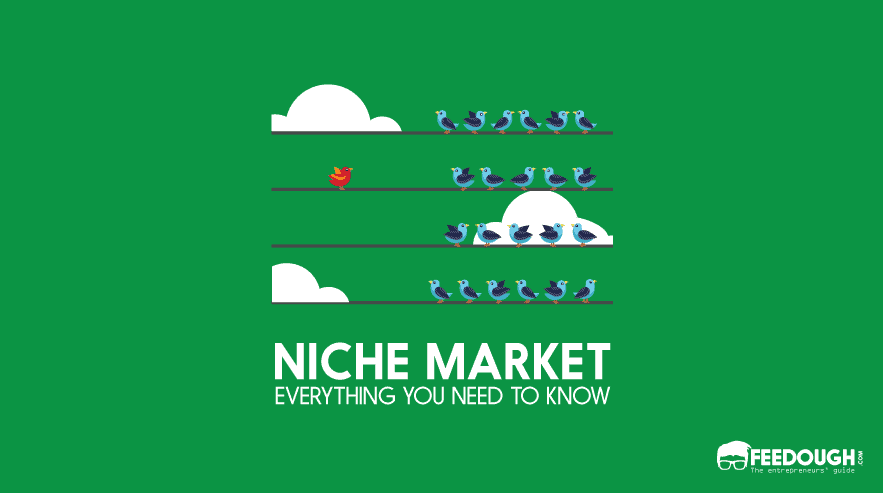In a usual business scenario ruled by well-funded corporations and marketers, mass appeal products are offered to an un-segmented market through mass retailers and independent stores. But this mass marketing technique often ignores the specific needs of specific segments.
This is where companies with niche market focus capitalise on.
Niche Market Definition
A niche market is a small but well-defined market segment which can be addressed by a business providing solutions that are not being provided by the mainstream providers.
In simple terms, a niche market is a particular market segment in the existing big market, which has a specific requirement that is being overlooked by mainstream providers. For example, computers for blind people is a niche which isn’t catered to properly by the existing companies dealing with computers.
What Makes A Market Niche?
While many people refer to a niche market as any other market segment, the truth is, unlike a usual market segment, a niche is created and not automatically developed.
Even though the demand is there in the market, the business brings the audience together to create a market of its own. Here are some factors to define a niche –
- Price: (premium pricing, discounted pricing, competitive pricing)
- Demographic Base: (gender-based, age-based, income level based, etc.)
- Quality: (premium quality, high quality, medium quality, low quality)
- Psychographics: (beliefs, values, morals, attitudes, etc.)
- Geographic: (buyer location, seller location, etc.)
- Channels (online, offline, etc.)
Niche Market Examples
While the mass market is the whole pie, niche marketing focuses on just a small slice of that pie. For example, instead of targeting the full loan industry, a company can target recent school graduates in New York who are looking for education loans to get to their preferred colleges. This will not only narrow the market for better targeting strategies but also will help the company to build a brand across a niche requirement and build more trust among that segment.
Here’s a list of some niche markets to make the topic clearer –
- Fitness: Yoga for expecting mothers in urban cities
- Sports: Disability Sports
- Business: House flippers
- Security: Identity theft protection
- Hobbies: Waltz for senior citizens
- Automotive: Disabled motorcycle rider aid products
- Taxi: Late night taxis for working women in the suburbs
Besides the above list, here are some real-life examples of businesses catering to the specific niches –
- Lefty’s: The Left-Hand Store – Lefty is an online store which deals with and ships left-handed products to people all over the world.
- Peter Manning NYC: Clothes for Short Men – Peter Manning is a specialised clothing store in the US for men with a height less than 5’8”.
Niche Market Advantages & Disadvantages
Catering to a highly specialised market has its own perks and cons. Here are the reasons why many companies choose niche marketing over mass marketing and vice versa.
Advantages
- Less Competition: Niche market usually witnesses less competition as there’s limited demand.
- Brand Loyalty: Since the company offers products considering all the requirements of the target market, it experiences more brand loyalty compared to the company dealing with the mass market.
- Cost Effective: It’s comparatively economical to market to a niche as there are few customers who can be targeted using common marketing means.
- Premium Pricing: Niche focused companies usually opt of premium pricing as they offer unique features which are actually required by the target market.
Disadvantages
- Limited Demand: There’s a limited demand which is very less compared to the mass market. Hence, sometimes resulting in less profits as compared to dealing in mass markets.
- It Takes Time To Divert Demand: Since niche-focused companies are small compared to big multinationals who serve mass markets, it is sometimes hard to divert the demand in their favour.
Go On, Tell Us What You Think!
Did we miss something? Come on! Tell us what you think of our guide in the comments section.
A startup consultant, digital marketer, traveller, and philomath. Aashish has worked with over 20 startups and successfully helped them ideate, raise money, and succeed. When not working, he can be found hiking, camping, and stargazing.








